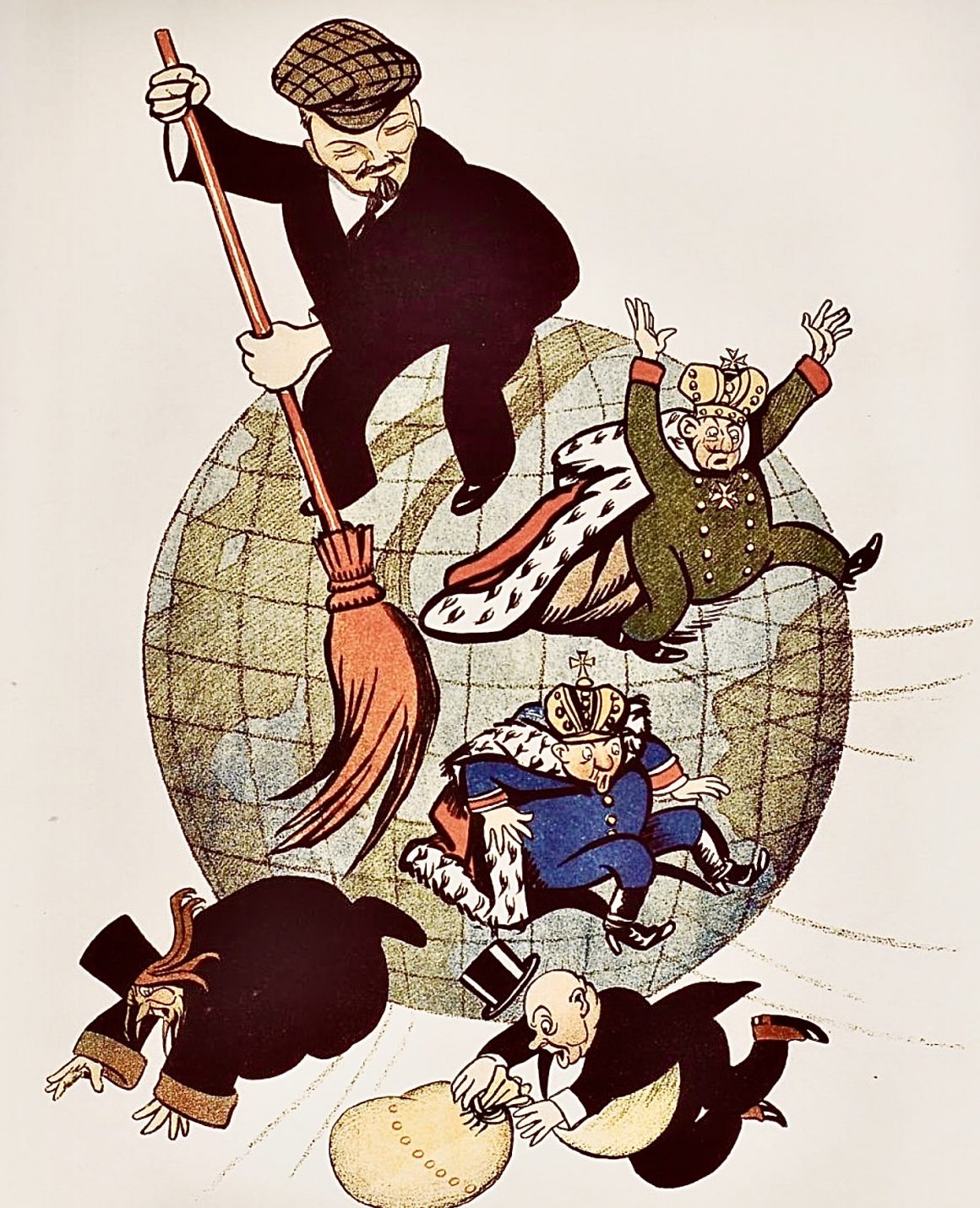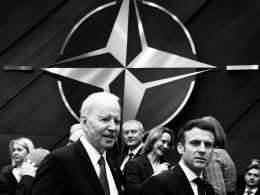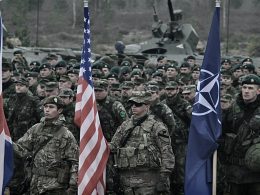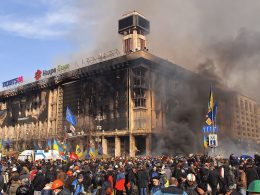At the center of the Marxist view of the world is the question: “What’s the material explanation behind the things we observe?” Marxists investigate which factors have produced the present conditions, because this is the key to changing those conditions.
Because by the Marxist criteria, U.S. imperial hegemony is the globe’s primary contradiction, the biggest of these points of Marxist investigation is the one pertaining to how the world got so unequal. Upon looking at the history of how the modern global economic system was formed, the answer Marxists find is that this inequality has been engineered for the benefit of international capital. From the Marxist perspective, it’s apparent that the true purpose of the Bretton Woods agreement and the global financial institutions it created was not to uplift the people of the colonized and formerly colonized countries. It was to make these people and their natural resources best able to be exploited by multinational corporations, entailing that their societies remain forcibly underdeveloped and unable to stand on their own feet economically.
Because this macro analysis of the economy makes it clear that organizations like the IMF, the World Bank, and the World Economic Forum exist to advance the interests of the capitalist ruling class, it logically follows that the economic dynamics within imperialism’s center are also products of such class-based designs. The regressive taxation, deregulation, privatization, dismantling of social services, destruction and co-optation of unions, and effective wage cuts that our government has carried out since the start of the neoliberal era all have the function of keeping profits up. As do the destabilizing events that have inevitably come about from these attacks on the tools for keeping our economy balanced.
When the economy unraveled in 2008, and when it recently entered into a new stage of collapse with the present pandemic-era housing crisis, it wasn’t because of any mistake. It was because of deliberate policy. Capitalism not just naturally leads to crises, but depends on them in order to maintain profits. When our ruling class deregulated the banks, as well as took away the support systems for keeping the people from falling into poverty during financial meltdowns, they accepted the consequences this would have. And the plan implicitly became that after the economy broke down, this would be used to gain further profits.
Such is the class character of our social reality. Neo-colonialism is the tool the capitalists have used to draw wealth from the economic peripheries since capitalism entered into its monopoly stage, and neoliberalism is the tool they’ve used to further the uneven development which came from this extractive project. The effect is one where the entire globe’s working class, both peripheral and core, has seen its wealth diminish. The proletarians of the neo-colonies have become even poorer than they were prior to neoliberalism, while the proletarians of the imperial center have seen their hopes for attaining mid-20th century living standards disappear. As the Marxist Michael Parenti writes, “Loans, investments, and most forms of aid are designed not to fight poverty but to augment the wealth of transnational investors at the expense of local populations.” With neoliberalism, this destructive policy has been able to be imported from the neo-colonies to the core, while the neo-colonies suffer even more than they used to.
What happens when one attempts to critique our social order while discounting these class realities? They come to the conclusions that Parenti observed America’s predominant “left” forces put forth:
Even among persons normally identified as progressive, one finds a reluctance to deal with the reality of capitalist class power. Sometimes the dismissal of the C-word is quite categorical. At a meeting in New York in 1986 I heard the sociologist Stanley Aronowitz comment, “When I hear the word ‘class’ I just yawn.” For Aronowitz, class is a concept of diminishing importance used by those he repeatedly referred to as “orthodox Marxists.” Another left academic, Ronald Aronson, in a book entitled After Marxism, claims—in the face of all recent evidence—that classes in capitalist society have become “less polarized” and class exploitation is not an urgent issue nowadays because labor unions “have achieved power to protect their members and affect social policy.” This occurs at a time when many unions are being destroyed, workers are being downgraded to the status of contract laborers, and the income gap is wider than in decades. Many who pretend to be on the Left are so rabidly anti-Marxist as to seize upon any conceivable notion except class power to explain what is happening in the world. They are the Anything-But-Class (ABC) theorists who, while not allied with conservatives on most political issues, do their part in stunting class consciousness.
Parenti was writing during the immediate years following the collapse of the Soviet Union, when anti-Marxism was at its strongest point in history. With the continued rise of inequality, and our multiple economic collapses that have accelerated the decline in living standards, the conditions have changed since then. Occupy Wall Street, and the discrediting of ruling class ideology that the financial crisis brought, have forced the ABC leftists to no longer object towards class analysis as brazenly as they used to. They’ve needed to pivot towards a new rhetorical practice. One that tries to divert the outrage created by our extreme inequalities towards those non-class based sources of blame.
This is an elevated version of the left anti-Marxism that Parenti described, a situation where even as our class contradictions have become far greater than they were even in the Reagan era, social media has given these opportunists a greater weapon for attacking those who advance the class struggle. These actors can call themselves communists, but they break from the essential communist stance of being a majoritarian. With virtually no exceptions, Marxists who are serious about winning power always recognize that the bulk of the people in their society have revolutionary potential. The only times it’s appropriate to view the people as fundamentally reactionary are when one is living in a place where practically every citizen can actually be called a reactionary, like Israel. And even there, the borders of the “country” in question are tiny, and surrounded by vast communities which stand in opposition towards its existence. Because the USA and Canada likewise were founded on genocide, and continue to depend on exploiting indigenous lands, one can argue they should also be abolished, and that’s in fact what I continue to argue. The big difference between them and Israel is that their borders encompass most of a continent, naturally making Americans have vastly more revolutionary potential than Israelis.
That most Americans at present hold the ideas of their imperialist government does not mean the people are fundamentally reactionary. It means they’ve so far exclusively been exposed to these ideas. Because so many of them have been proletarianized by neoliberalism, and with inflation are now living paycheck to paycheck in a proportion of around two-thirds, their material interests do not lie in the maintenance of capitalism. They lie in proletarian revolution. This is the reality of our conditions that the ABC leftists still won’t admit. If they were to admit it, they would be able to attain a much more hopeful view of the world, as class solidarity gives one great optimism. But their priorities are not aligned with class solidarity, they’re aligned with advancing an opportunistic project.
This project is observable in the gatekeeping, pettiness, and insularity that dominates the social media spaces of these actors who claim to represent the “left.” Their goal is to perpetuate the ideas that Parenti observed keep us away from a class analysis, and stuck in atomized factions which view their own struggles as more important than the liberation of the proletariat as a whole: “Both orthodox social scientists and ‘left’ ABC theorists treat the diverse social factions within the non-capitalist class as classes unto themselves; so they speak of a ‘blue-collar class,’ a ‘professional class,’ and the like. In doing so, they claim to be moving beyond a ‘reductionist,’ Marxist dualistic model of classes. But what is more reductionist than to ignore the underlying dynamics of economic power and the conflict between capital and labor? What is more misleading than to treat occupational groups as autonomous classes, giving attention to every social group in capitalist society except the capitalist class itself, to every social conflict except class conflict?”
This effort to act like the positional subsets of the working class have wholly different interests extends to the myopic views regarding the different identity groups. To the ideas that replace class with race, gender, or sexuality, ignoring how the struggles of every identity group can only be truly resolved when the working class gains victory.
There’s a narcissistic motive behind these ideas, one that disregards the interests of the entire working class movement in favor of one’s immediate surroundings. It’s the mentality that’s compelled American ultra-leftists to actively reject the idea of fighting against U.S. imperialism, and to exclusively focus on their local conditions. Even though these leftists reside in the center of imperialism, where they have the ability to disrupt the U.S. government’s sanctions, occupations, bombings, and proxy wars, they prefer to detach themselves from the globe’s struggle against imperialist violence. The realities that U.S. hegemony is the globe’s primary contradiction, and that class oppression is the primary contradiction in the core, are both discounted in their analysis. As is the logical conclusion of these two facts, which is that workers victory can’t come in the core without there being a movement to weaken the empire that keeps our capitalist state strong. They’ve decided to turn away from the macro perspective—the perspective that can actually let us change the power dynamics—and embrace the micro.
When one embraces the macro analysis, the one that requires asking what the material explanation is behind our conditions, they’re also led to ask: “What are the best courses of action to take in order to advance history to the next developmental stage?” This question defeats all the ideological obstacles that the ABC left has created towards adopting the optimal revolutionary practice. The fact that Russia is presently a capitalist state, for instance, should have no effect on whether somebody who’s serious about dialectics supports Operation Z. Z is weakening U.S. hegemony regardless, and a Marxist analysis disproves the NATO-adjacent ideas about Russia being a fascist or imperialist state. Because Z is weakening imperialism without exacerbating an equivalent contradiction, it’s worth the support from Marxists. Who within America can assist Z, in a way, by waging informational warfare against NATO and thereby helping make the Ukraine arms project untenable. The equivalent reasoning applies to China’s BRI, which is economically defeating the U.S. empire and should therefore be defended from accusations of “imperialism.”
That’s the big lesson which communists in the imperial center need to learn about geopolitics, namely that they shouldn’t ignore it like the ABC leftists want them to. The big lesson they need to learn about advancing the class struggle within our local conditions is that this geopolitical/informational fight against the U.S. State Department is essential for bringing our class struggle to escalation. To make this struggle succeed, we must build our anti-imperialist coalition, a coalition that was recently made stronger with the Rage Against the War Machine rally in DC.
RAWM’s organizers are now working to turn their project into a permanent coalition, and that goal will be advanced by ANSWER’s rally on the 18th. This rally represents a strengthening of anti-imperialist unity, especially among Marxists, because its Bay Area counterpart is being organized by the PCUSA in partnership with the PSL. PCUSA is the same party that organized a Bay Area demonstration in tandem with RAWM, and PSL essentially runs ANSWER. This means these two parties, which are among the most relevant socialist organizations in the country, are building a working relationship based on the resistance towards Washington’s proxy war.
The outcome of these developments could be the full breaking of the monopoly which the ABC left has held over organizing spaces ever since McCarthyism handicapped the communist movement. Communism has an opportunity to become mainstream again. For this to happen, communists must act to continue destroying the influence of the imperialism-compatible, ABC leftists. They represent the initial stage in the state’s counterinsurgency, and this is evidenced by how COINTELPRO has been weaponizing anarchist and Maoist ideology since the counterculture movement. Once we’ve sufficiently gotten rid of their stifling control, and the communist movement is no longer held back by them, the state will intensify its backlash against us. Then a new stage in the struggle will begin.
—————————————————————————
If you appreciate my work, I hope you become a one-time or regular donor to my Patreon account. Like most of us, I’m feeling the economic pinch during late-stage capitalism, and I need money to keep fighting for a new system that works for all of us. Go to my Patreon here.








